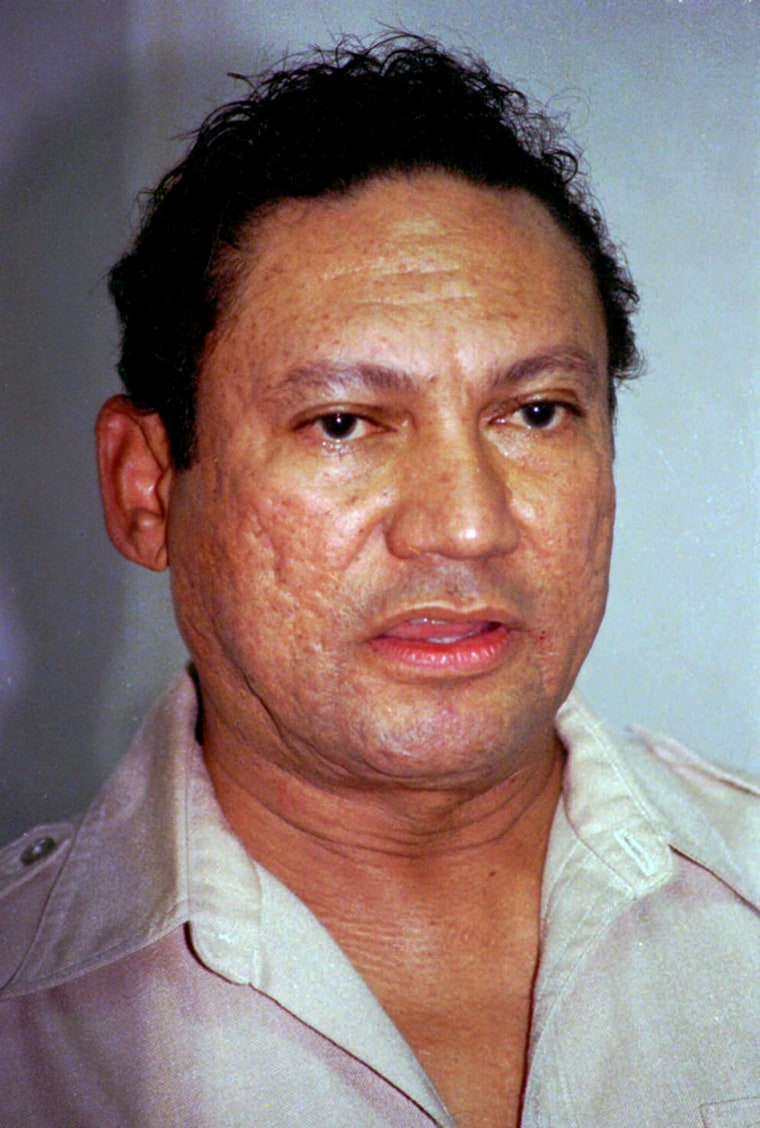Lawyers for former Panamanian dictator Manuel Noriega asked a federal judge Monday to block his extradition to France and order his return to his home country when he leaves a U.S. prison in September.
Attorneys Frank Rubino and Jon May said that because Noriega was declared a prisoner of war by a judge in 1992, the Geneva Convention requires his repatriation when he finishes the prison sentence for a U.S. drug trafficking conviction. France could then attempt to extradite him from Panama, they said.
“The French do not have the upper hand,” May told reporters outside the federal courthouse in Miami. “General Noriega is a prisoner of war.”
Noriega, 71, was convicted in 1992 of protecting Colombian cocaine shipments to the U.S. through Panama during the 1980s and sentenced to 30 years. That sentence was reduced for good behavior, and Noriega is now set for release on Sept. 9.
Federal prosecutors last week filed the extradition request from France, which wants Noriega to face money-laundering charges involving about $3.15 million in drug profits used in part to buy luxurious apartments in Paris. An initial hearing on that request is scheduled for Thursday.
Lawyers seek new trial
Noriega was convicted in 1999 in France and sentenced to 10 years in prison there, but under the extradition request he would be entitled to a new trial, according to court documents.
Noriega’s lawyers filed their request Monday with the judge who presided over Noriega’s trial and declared him a prisoner of war, Senior U.S. District Judge William Hoeveler.
Even though Noriega was convicted of the drug crimes, he is still entitled to protections of the Geneva Convention governing prisoners of war, his lawyers said. Noriega was seized by U.S. forces after a 1989 invasion of Panama seeking to drive him from power, then tried on the criminal charges.
“The fact that General Noriega has been in custody serving a sentence for a crime committed prior to his capture by the United States in no way deprives General Noriega of the full protections of the Convention,” Rubino and May wrote in their motion.
There was no immediate comment from the office of U.S. Attorney R. Alexander Acosta, which filed the extradition request on behalf of France.
Panama also wants to jail him
For its part, Panama insists that it still wants to put Noriega on trial for murder in the 1985 decapitation of dissident leader Hugo Spadafora and the 1989 slaying of Maj. Moises Giroldi, who tried to overthrow him. A trial held without Noriega present found him guilty, resulting in two 20-year sentences.
Rubino said he would be happy to get a chance to fight those charges in Panama.
“If they really want him home, I’ll help them,” he said.
Panama’s former foreign minister, Jose Raul Mulino, said last week that France’s extradition request appears to be “a political arrangement between France and Panama so that Noriega can evade Panama’s justice system.”
